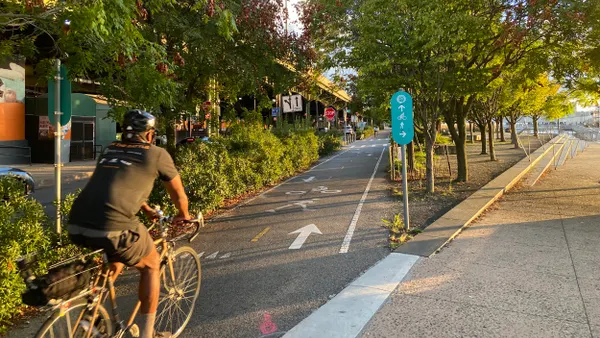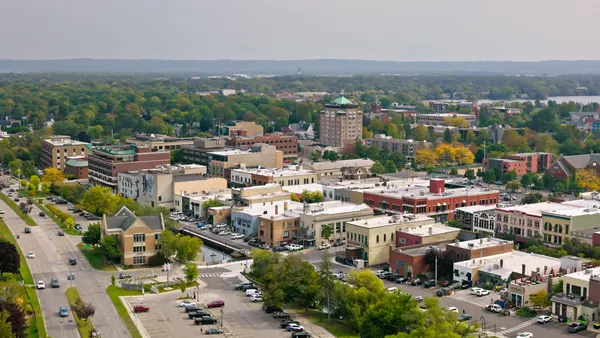Dive Brief:
- A group of universities in Florida, New Jersey and New York announced last week they are forming a federally funded center to research “smart streetscapes.”
- The Engineering Research Center for Smart Streetscapes will explore improvements related to road safety and traffic efficiency, public safety, assistive technologies, the future of outdoor work and hyper-local environments. Researchers plan to partner with municipal agencies and community organizations in West Palm Beach, Florida; New Brunswick, New Jersey; and Harlem, New York.
- The center’s leaders have taken into account lessons from past smart cities projects’ pitfalls, said Jason Hallstrom, the center’s deputy director and chief research officer. “We're not going into this with preconceived ideas,” said Hallstrom, who is a professor in the College of Engineering & Computer Science at Florida Atlantic University. While the center has laid out research themes, “the applications need to come from our communities.”
Dive Insight:
A smart streetscape has the potential to “instantly sense human behavior and guide disabled pedestrians, collect refuse, control pests, amplify emergency services, and protect people against environmental and health threats,” the center’s announcement states.
The center is funded by the National Science Foundation for the next five years with $26 million, with the potential to renew for another five years thereafter. Columbia University, Florida Atlantic University, Lehman College, Rutgers University and the University of Central Florida are the center partners.
In addition to working with municipal agencies and community groups, the center already has about two dozen industry partners, ranging from large commercial builders to road safety companies to smart cities analytics companies, Hallstrom said, and it hopes to add more.
In Hallstrom’s view, advances in underlying technology are driving some university partnerships today. “We have better computational platforms, we have better wireless networking, we have better power management — better everything on the technology side to allow us to build applications that we could only dream about in the early 2000s, or even six, eight years ago,” he said.
But it’s also about a realization of the value municipalities can provide to researchers, he said. “That's not unique to smart cities projects ... that's something that we're seeing in the research landscape more broadly, where we're seeing more collaborations between municipalities and university partners and research laboratories, and that's driving a lot of interesting innovation.”
The initial step for the center will be community engagement, Hallstrom said. In West Palm Beach, Hallstrom and FAU-based colleagues will build on their experience partnering with the community to generate ideas. The city and university partnered on the West Palm Beach Mobility Intelligence Project in 2019.
“The foundation of this center is really based in understanding and respecting the needs of the local communities that will host this technology,” he said. “So we're going to be developing technologies that allow us to effectively encode the security and privacy constraints and expectations of communities” Hallstrom said, among many other types of technology the center is interested in.
Other university-based smart cities research initiatives announced this year include the OpenCyberCity test bed at Virginia Commonwealth University’s College of Engineering, designed to carry out smart city and autonomous vehicle experiments on a small-scale cityscape. The University of Connecticut is considering constructing a test track and research facility for connected and autonomous vehicles and smart city transportation planning.











